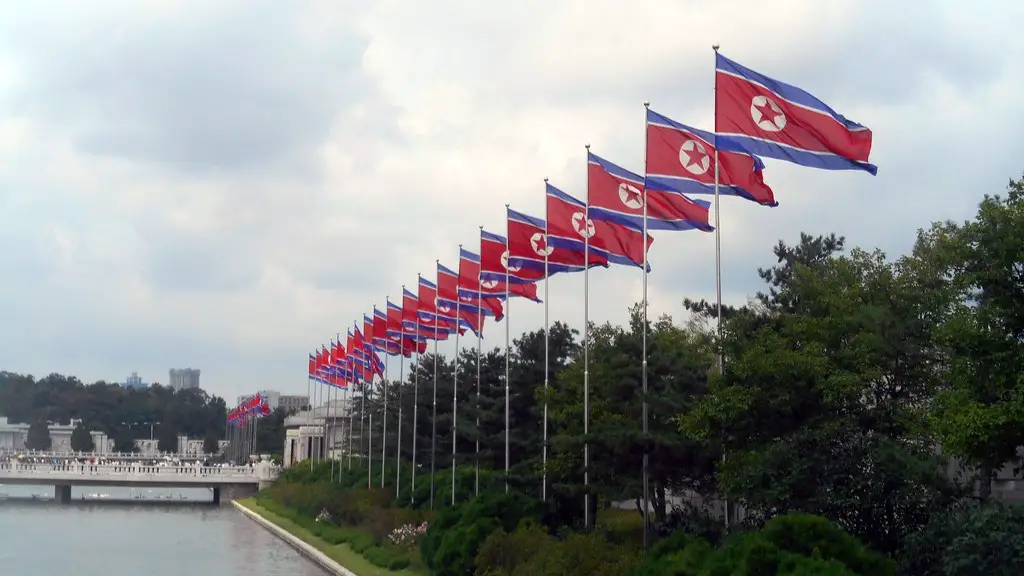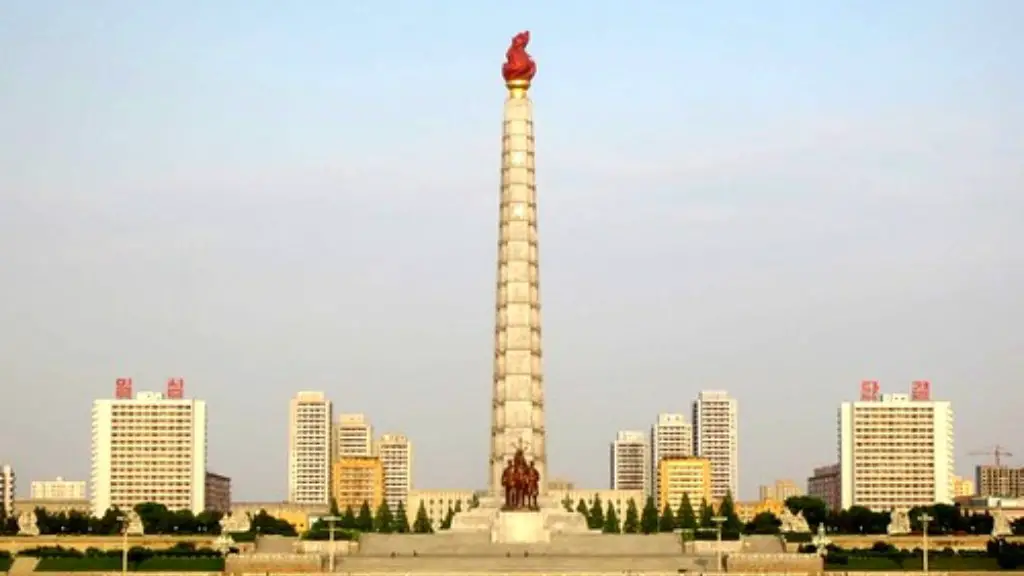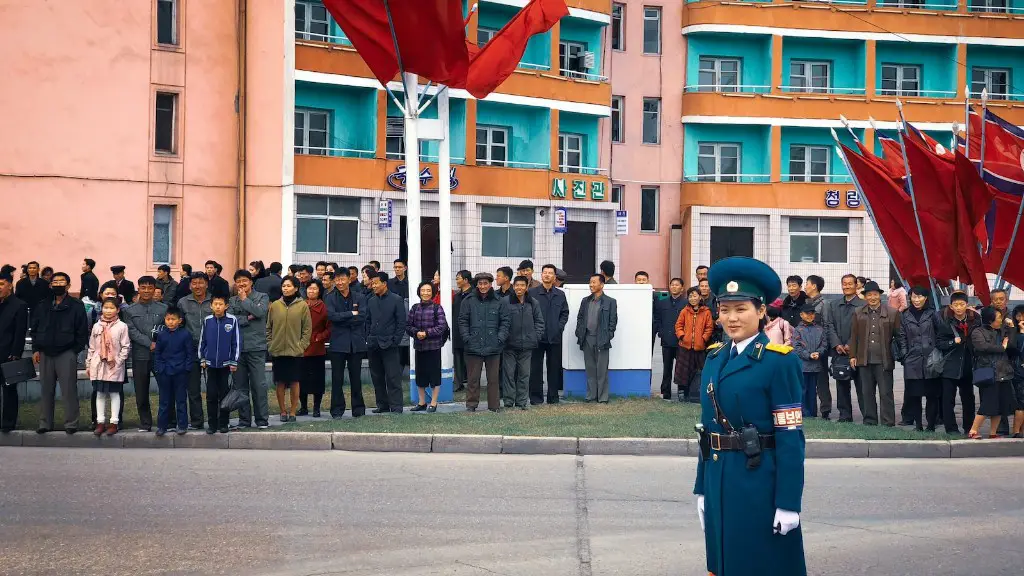Introduction
In July 2020, North Korea allegedly banned all pet dogs and ordered citizens to hand them over to government shelters. The news spread around the world, sparking simultaneous amazement, shock, and outrage. But how exactly did this move come about? Why did North Korea decide to take such an extreme measure against pet dog owners? To answer these questions, it is important to understand North Korea’s history and current situation.
Context and Precedence
North Korea is an isolated nation with a highly authoritarian regime, led by a single leader, Kim Jong Un. Recently, there have been several reports of starvation and poverty in the country, with citizens even going as far as eating grass in order to survive. Even amidst this pressing economic crisis, the government still found the resources to take such a drastic measure against pet dogs.
In addition, this is not the first time that the government has cracked down on pet owners. As early as 2012, there have been reports that the government was banning certain breeds of dogs, and even going so far as reprimanding pet owners for violating the prohibition. This move was later reinforced in 2018, with Kim Jong Un reportedly expressing discontent with the pet culture in the country.
Reasons Behind the Ban
The government has cited numerous reasons for banning pet dogs in the country, ranging from health and safety concerns to economic issues. North Korea’s official news agency KCNA has reported that pet dogs are “causing pollution” and “causing disruption of the traffic order”. Government officials have also stated that the resources used to raise pet dogs could be better used to feed citizens in the impoverished nation.
However, some experts have argued that the real reasons behind the ban are far more political. Government officials have argued that pet dogs were seen as too Western, and could serve as an unwelcome reminder of the luxuries of capitalist nations. For example, some have seen the ban as a way to protect North Korea’s tradition of moral and ideological purity from the perceived contamination of Western customs.
Civil Society Outcry
The decision to ban pet dogs has been met with furious criticism from North Korean citizens and civil society. Pet owners have spoken out about the harshness of the prohibition and the difficulties it has presented to them. Some have said that the decision was “ruthless” and “inhumane”, while others have stated that the government should have provided more support or guidance to those affected.
Furthermore, the ban has sparked international outcry as well. Animal rights activists around the world have condemned the decision, some going as far as launching a petition to have the ban overturned. Experts have argued that the measure is a violation of basic human rights, and have called on the government to overturn the decision.
International Response
In response to the ban, the United Nations has called on the North Korean government to provide more information about the situation. The UN has also expressed concern about the deteriorating human rights situation in the country, and has urged the government to reconsider its decision. A number of international organizations have also stated their intention to provide aid and assistance to those affected by the ban.
However, the North Korean government has remained defiant and has refused to back down on the ban. In response to international criticism, the government has cited “socialist values” and “public health” as justification for the measure. Despite this, there are signs that the government may be starting to reconsider its position, with reports indicating that it may reconsider the ban in the near future.
Domestic Impact
Despite the ban, many pet owners have been able to keep their furry friends safe by illegally hiding them from the government. This has helped to reduce the number of pets that have been removed from their homes by the government, but it has still had an impact on the country’s pet culture. For example, many pet owners have been reluctant to openly display their affection for their pets, fearing the possibility of repercussions from the authorities.
At the same time, the ban has also impacted pet stores and businesses in the country. Many pet store owners have been forced to close down their stores, leaving many pet owners without access to food and supplies. Others have seen their profits decline drastically, as citizens are reluctant to invest in costly items such as dog food.
Opinion on the Ban
The ban has been widely criticized both domestically and internationally, with many arguing that it is a violation of basic human rights. However, it is important to note that the decision was largely driven by the government’s desire to promote “socialist values” and preserve its own power. In addition, the measure has had a wide-sweeping impact on the pet culture in the country, with many pet owners now reluctant to openly display their affection for their pets.
Ultimately, the decision to ban pet dogs was a drastic and unprecedented move by the North Korean government. While it is still unclear what the long-term implications of this decision will be, the immediate effects are already being felt by pet owners and business owners in the country.
Conclusion of the Ban
The decision to ban pet dogs in North Korea was a harsh and unexpected move by the government. It has sparked criticism both domestically and internationally, with many arguing that it is an infringement on basic human rights. At the same time, it has had a drastic and far-reaching impact on the pet culture in the country, with many pet owners now too afraid to openly display their affection for their pets.
Role of Animal Rights Activists
Animal rights activists have condemned the decision and have launched a number of campaigns to have the ban overturned. Such campaigns have included petitions, online campaigns, and even protests outside North Korean embassies. Activists have also called on the UN and international organizations to pressure the North Korean government to reconsider its decision.
The international community has responded positively to the calls of the animal rights activists and have expressed their concern over the situation. The UN has called on the North Korean government to provide more information about the ban and has urged it to reconsider its decision. At the same time, some international organizations have already pledged their assistance to those affected by the situation.
Impacts of the Ban on North Koreans
The ban has had a wide-reaching impact on North Korean citizens. Pet owners have spoken about the difficulties it has presented for them, with many struggling to keep their pets safe. Others have seen their businesses suffer, as citizens are unwilling to invest in pet-related items. Finally, many pet owners have become afraid to open display their affection for their pets, out of fear of government reprisal.
Despite the international outcry, the North Korean government continues to remain defiant and has refused to reconsider its decision. Even amidst this, some people have managed to keep their pets safe by illegally hiding them from the government. While the situation is far from ideal, it appears that the ban has at least helped to reduce the number of pets that have been removed from their homes.
Prospects for the Future
The future of pets in North Korea remains uncertain. The government has refused to back down on the ban, and it is still unclear when or if it will reconsider its decision. However, there are some signs that the government may start to reconsider its position, with reports indicating that it may eventually lift the ban. Until then, pet owners in North Korea will have to live with the restrictions imposed by the government.
Role of International Organizations
International organizations have expressed their concern over the situation and have pledged their assistance. The UN has called on North Korea to provide more information about the ban and to reconsider its decision. A number of international organizations have also started to provide aid and assistance to those affected, both in terms of material resources and support for pet owners in the country.
At the same time, it is important to note that many organizations are limited in the amount of assistance they can provide. The UN and international organizations have little influence over the North Korean government, and so their efforts to have the ban overturned may ultimately be in vain. As such, it may be up to the citizens of North Korea to take the lead in pushing for a change.





